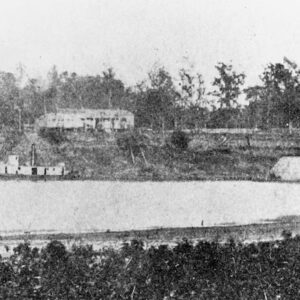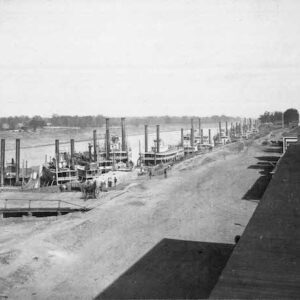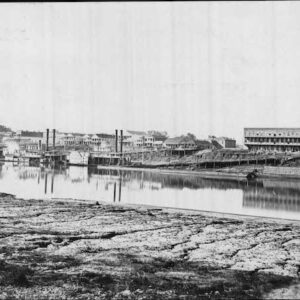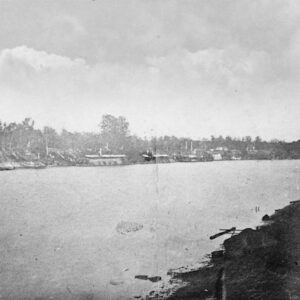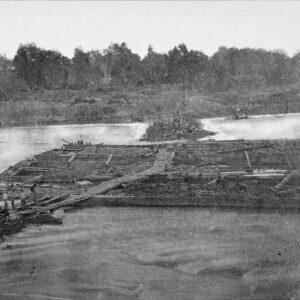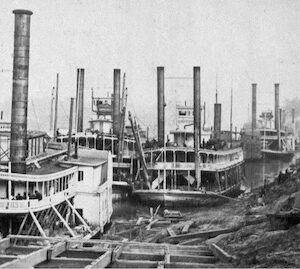Tag: Alexandria LA
Wikipedia says: Alexandria is the ninth-largest city in the state of Louisiana and is the parish seat of Rapides Parish, Louisiana, United States. It lies on the south bank of the Red River in almost the exact geographic center of the state.
Located along the Red River, the city of Alexandria was originally home to a community which supported activities of the adjacent French trader outpost of Post du Rapides. The area developed as an assemblage of traders, Caddo people, and merchants in the agricultural lands bordering the mostly unsettled areas to the north and providing a link from the south to the El Camino Real and then larger settlement of Natchitoches, the oldest permanent settlement in the Louisiana Purchase.
Alexander Fulton, a businessman from Washington County, near Pittsburgh, Pennsylvania, received a land grant from Spain in 1762, and the first organized settlement was made at some point in the 1780s. In 1805, Fulton and business partner Thomas Harris Maddox laid out the town plan and named the town in Fulton’s honor. The earliest deed that survives for an Alexandria resident is from June 24, 1801, when a William Cochren, who identifies himself as “Slave master of the Southern Americas”, sold a tract of land across the Red River to a William Murrey.
That same year, Fulton was appointed coroner in Rapides Parish by territorial Governor William C.C. Claiborne. Alexandria was incorporated as a town in 1818 and received a city charter in 1832.
Civil War in Alexandria
In the spring of 1863, Alexandria was occupied by Union forces under the command of Admiral David Dixon Porter and General Nathaniel P. Banks. Porter arrived with his gunboats on May 7. Later in the day Banks reached Alexandria with his cavalry, whose members had marched twenty-five miles that day to reach the city. According to the historian John D. Winters of Louisiana Tech University, Porter disliked Banks but nevertheless turned over Alexandria to him and then departed to rejoin General U.S. Grant at the ongoing siege of Vicksburg, Mississippi. Banks posted guards and declared martial law. Porter left behind the gunboat USS Lafayette in Alexandria and posted the USS Pittsburg on the Black River to the northeast.
In 1864, Admiral Porter returned to the area and quarreled with General Banks over possession of cotton supplies. Porter seized three hundred bales of Confederate cotton from various warehouses in Alexandria and stamped it “U.S.N. prize”, referring to the United States Navy. Porter sent his sailors into the country to search for unginned cotton. After the crop was located, it was brought to Alexandria to be ginned and baled. The sailors also seized molasses and wool. Winters writes that Porter “took all cotton wherever he found it, cotton belonging to the Confederate government, cotton belonging to the ‘rebels,’ and cotton belonging to ‘loyal’ citizens.”
Winters continues: “Banks was furious with Porter when he learned that the admiral was scouring the interior for cotton. Since he had no authority to stop Porter’s speculative activities, Banks could only try to beat him to the remaining cotton. Army wagons were sent out in large numbers to collect the cotton. Thousands of bales were brought in by the troops and stored for future shipment. Jealous of the abundant transportation facilities of the army, unprincipled navy men stole army wagons and teams at night, repainted the wagons, and branded the mules with navy initials, and dove deep in the country in search of cotton.”
The federal army made itself as comfortable as possible during its long stay in Alexandria. Winters writes that “lumber and tools were foraged, and the men busied themselves by building wooden tent floors, benches, and furniture. … Alexandria [was enclosed] with a zigzag line of fortifications.” While Banks remained in Alexandria in the spring of 1864, Porter was temporarily trapped north of the city because of the low level of the Red River, four feet instead of the needed seven feet to accommodate gunboats.
Confederate citizens as a whole were most fearful of the Union. According to Winters, “most [Confederates] had never before seen a Yankee soldier [and] expected the worse from the invader. … ‘Some cried, some cursed, some whined; and some overcome with fear, hid themselves in the woods, leaving everything to the tender mercies of the army.’ Negroes were responsible for much of the plunder and pillage. Negro camp followers and officers’ servants roamed the plantations and small farms without hindrance, bringing in their booty to camps each afternoon.”
On May 13, 1864, when the Union decided to abandon Alexandria, the city was set afire despite General Banks’ order to the contrary. Winters reports that “burning and plundering” by two Union corps, who set fire to a store on Front Street. Then “a strong wind spread the flames rapidly from one building to the next.” Banks later claimed that the fire “broke out in the attic of one of the buildings on the levee inhabited by either soldiers or refugees.” Winters reports that “pandemonium reigned; frightened cows bellowed and charged through the flaming streets; squawking chickens with scorched wings tried to fly out of danger. Hundreds of women, children, and old people ran through the streets, trying to carry a few of their belongings to safety. When the heat became unbearable, they dropped their loads and fled to the levee. Thieves ran from house to house and even along the levee taking whatever they wanted from the shocked people. By noon the most congested parts of town were destroyed. An attempt to blow up a church in the path of the fire only succeeded in helping to spread the flames.”
Alexandria faced the overwhelming task of rebuilding with a year of the war remaining. Prices became exorbitant; butter cost $10 a pound, bacon $5 a pound, flour $3 a pound, and a bushel of meal $10. Many of the helpless lived in the forest without food, shelter, or clothing, subsisting on blackberries. All clothing was homespun, and shoes were mostly made of cloth. While Admiral Porter expressed sympathy for the suffering Alexandria residents, he declared the “burning of Alexandria a fit termination of the unfortunate Red River expedition.”
